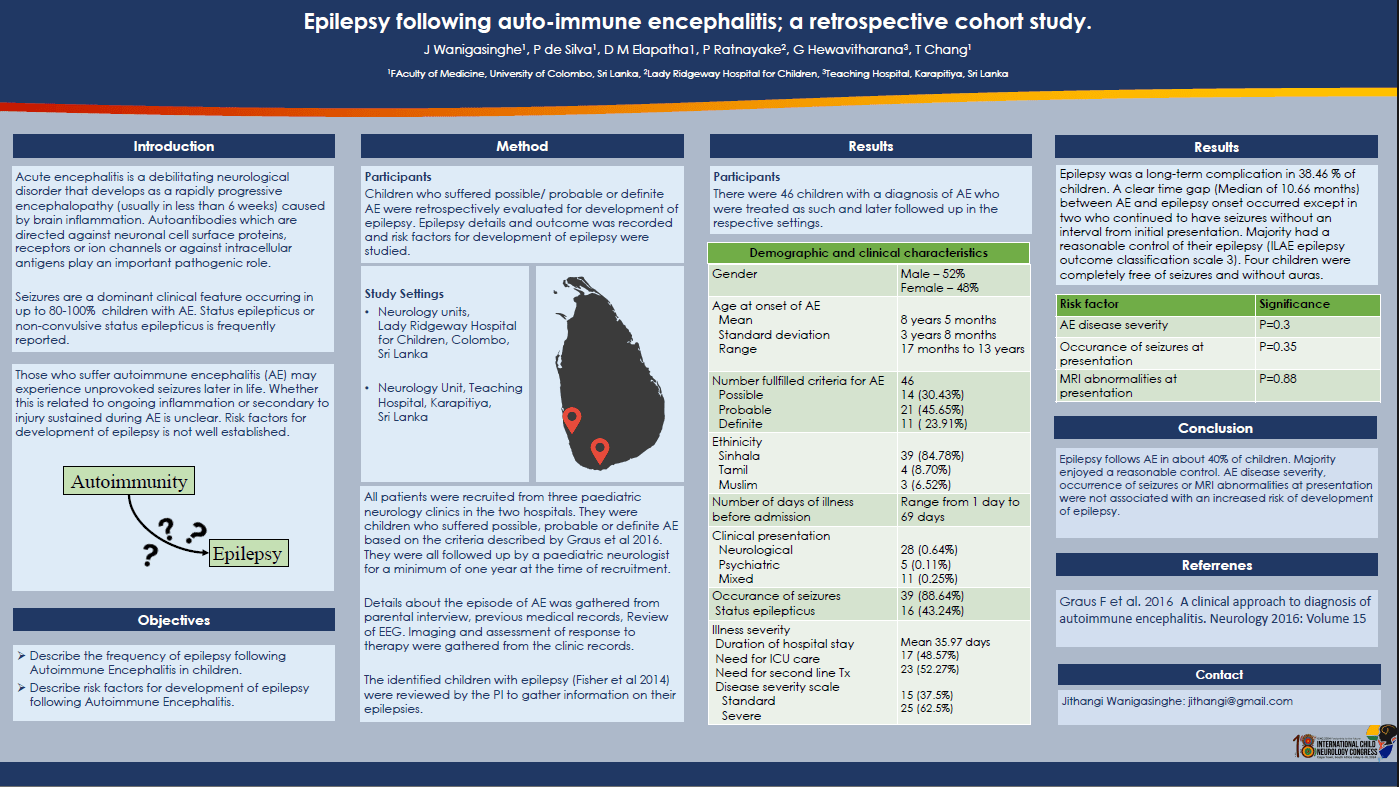Epilepsy Following Auto-Immune Encephalitis; A Retrospective Cohort Study
Those who suffer autoimmune encephalitis(AE) may experience unprovoked seizures later in life. Whether this is related to ongoing inflammation or secondary to injury sustained during AE is unclear. Risk factors for development of epilepsy is not established.
Objective Describe the frequency of epilepsy following AE in children. Describe risk factors for development of epilepsy following AE.
Method Children who suffered possible/ probable or definite AE were retrospectively evaluated for development of epilepsy. Epilepsy details and outcome was recorded and risk factors for development of epilepsy were studied.
Results Fifty children diagnosed and treated as for AE in two hospitals in Sri Lanka were included. Fifteen, 23 and 10 fulfilled criteria for possible, probable and definite AE. Two were excluded. A dominance of male sex was noted. Age at onset of AE ranged from 30 months to 14 years. The initial presentation was neurological in a majority (60%); a large proportion (86%) experienced seizures during the acute presentation.
Epilepsy was a long-term complication in 40% of children. A clear time gap between AE and epilepsy onset occurred except in two who continued to have seizures without an interval from initial presentation. Majority had a reasonable control of their epilepsy (ILAE epilepsy outcome classification scale 3). Four children were completely free of seizures and without auras.
AE disease severity, occurrence of seizures or MRI abnormalities at presentation were not associated with an increased risk of development of epilepsy.
Conclusions Epilepsy follows AE in about 40% of children. Majority enjoyed a reasonable control.
JIthangi Wanigasinghe
University of Colombo
Sri Lanka
Poorna De Silva
University of Colombo
Sri Lanka
Dulara Elapatha
University of Colombo
Sri Lanka
Pyara Ratnayake
Lady Ridgeway Hospital
Sri Lanka
Gemunu Hewavitharana
Teaching Hospital
Sri Lanka
Thashi Chang
University of COlombo
Sri Lanka

JIthangi Wanigasinghe
University of Colombo
Sri Lanka